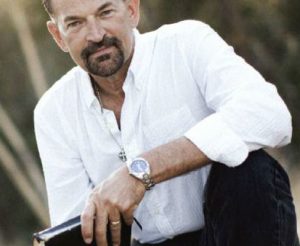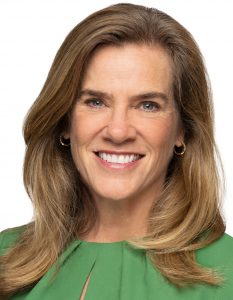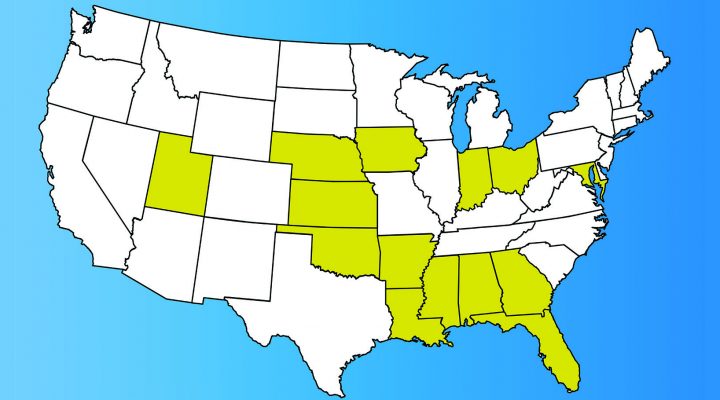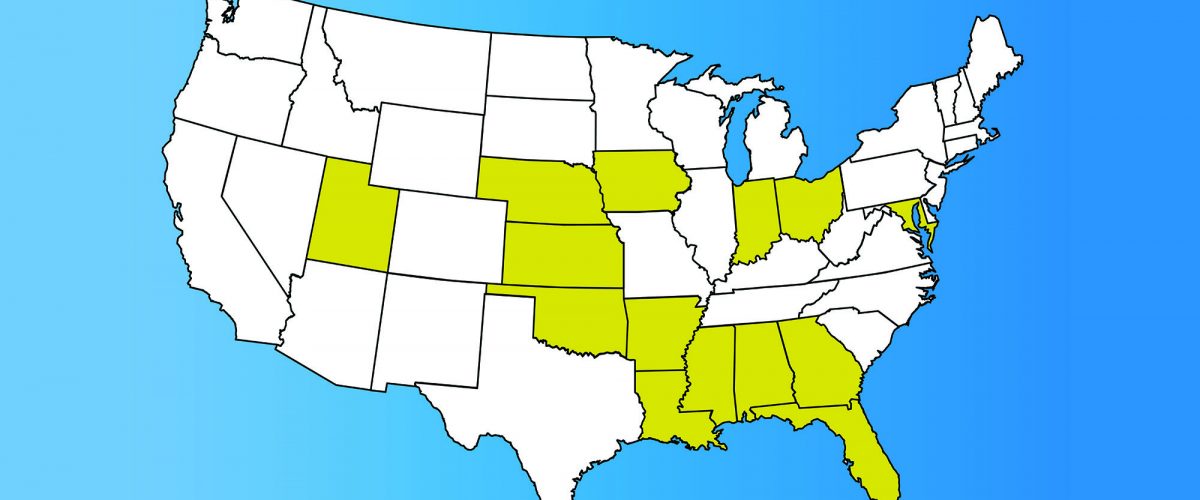A growing coalition of faith-based and civil rights groups has launched an opposition movement to bills in more than a dozen states that seek to replace school counselors with untrained chaplains.
“Putting chaplains in public schools erodes the separation of religion and government and opens our students up to potential religious coercion. That’s why this broad and diverse coalition is standing together to challenge these dangerous bills wherever they are introduced across the country,” said Interfaith Alliance President Paul Raushenbush.
On March 6, 34 civil rights organizations, 38 faith-based groups and more than 200 professional chaplains sent separate letters protesting legislative efforts to place untrained chaplains into the public schools of least 14 states, including Alabama, Florida, Georgia, Indiana, Iowa, Kansas, Louisiana, Maryland, Mississippi, Missouri, Nebraska, Ohio, Oklahoma and Utah.
The letters warn that students’ religious freedom and mental health will be jeopardized by policies that require no training or certification for chaplains and do not prohibit the proselytizing of children.
“We strongly caution against the government assertion of authority for the spiritual development and formation of our public school children.”
“As trained chaplains, we strongly caution against the government assertion of authority for the spiritual development and formation of our public school children,” chaplains said in their letter to state legislators.
“Families and religious institutions — not public school officials — should direct the religious education of our children,” the letter states. “Introducing religious leaders into official school positions to serve students in schools will cause division among student bodies that are made up of many religions and nonreligious students.”
The school “chaplaincy” debate has been raging since Texas was the first to pass a school chaplaincy law in 2023. The measure allows public schools to replace professionally trained counselors with hired or volunteer chaplains who are free to evangelize students.
Baptist Joint Committee for Religious liberty helped lead a six-month campaign opposing the plan. As a result, the 25 largest school systems in Texas voted against adopting the chaplaincy policy.
Although the March 1 deadline for districts to accept or reject the policy for their schools has passed, there is no central data point on the 1,200 school districts in the state, as the law contained no reporting provision and no enforcement mechanism.
The Christian evangelist behind these bills is based in Norman, Okla. And his effort isn’t going well in his home state either.
The Oklahoman reported March 6 that state’s school chaplaincy bill did not make it out of committee and is unlikely to be acted on during the 2024 legislative session.

Rocky Malloy
According to the newspaper, the delay was decidedly unwelcomed by Rocky Malloy and his National School Chaplain Association, which has vowed to take the concept nationwide.
“I mean, we’re in arguably one of the most conservative states in the country. We’re in the middle of the Bible Belt and we can’t get a chaplain bill, and you’ve got all these other states that are getting their chaplain bills,” lamented Johnny Davis, the association’s chief development officer.
In their open letter about public school chaplains, the religious organizations cautioned that replacing school counselors with chaplains — even trained ones — is deeply problematic.
“Chaplains can play a vital role in helping people engage in the practices and traditions of their religions and beliefs, but most chaplains are not trained or qualified to perform the duties of school counselors or school support staff,” according to the letter signed by groups such as the Alliance of Baptists, the Anti-Defamation League, the Cooperative Baptist Fellowship, Hindus for Human Rights, the Interfaith Alliance and the National Council of Jewish Women and Sojourners.
“Chaplains, by contrast, are trained as religious leaders to provide religious services and spiritual care,” the letter says. “They do not have the same academic and professional credentials as school counselors and other support staff. Relying on any untrained and uncertified individual to serve students could lead to real harm to students, and schools could be held liable.”
Chaplains serving in public schools also would infringe on the religious freedom of students and their families by violating the constitutional guarantee that all Americans can practice or not practice faith without government interference, the faith groups said.
“Having a school chaplain of any faith would amount to government-sponsored religion and create an environment ripe for religious coercion and the indoctrination of students.”
“Having a school chaplain of any faith would amount to government-sponsored religion and create an environment ripe for religious coercion and the indoctrination of students. That is why courts have repeatedly ruled that it is unconstitutional for public schools to invite religious leaders onto campus to engage in religious activities, such as prayer and religious counseling, with students.”
School chaplaincy bills present a violation of the Establishment Clause of the First Amendment by giving preferential treatment to people of faith over those with none, civil rights groups said in a letter endorsed by the American Civil Liberties Union, BJC, the National LGBTQ Task Force and the Secular Student Alliance.
“They result in an unconstitutional preference for religion over nonreligion. And the danger here goes beyond the constitutional violation. In relying on uncertified, unqualified clergy to perform student-support duties such as counseling, schools risk students receiving inadequate or inappropriate care and could be held liable for this negligence.”
The polices inevitably would favor one religion over others in many contexts, the civil rights advocates said. “Across the country, families and students practice a wide variety of faiths, and many are nonreligious. All should feel welcome in public schools. Even well-intentioned chaplain policies will undermine this fundamental premise of our public-education system and violate our longstanding First Amendment principles.”
A favorite argument by supporters of school chaplaincy programs is that chaplains are successfully used in military, prison and hospital settings. But the comparison doesn’t hold water, according to the letter signed by Baptist, Buddhist, Catholic and Jewish chaplains serving in the armed forces, health care institutions and prisons.
“Military members may have security or language barriers in finding a house of worship while on deployment. Incarcerated individuals are not given a ‘religious hall pass’ to leave prison and attend the corporate worship service of their own choosing. Hospitalized patients may be too sick or far away from their congregations to engage in meaningful religious exercise. Public school children do not face the barriers to religious exercise that service members, prisoners, and patients face,” the letter explains.

Holly Hollman
BJC General Counsel Holly Hollman said all questions of religion should simply be left to students and their loved ones.
“Efforts to put religious leaders in official roles in the public schools invade a realm of religious freedom that is properly protected by the separation of the institutions of church and state,” she said. “Families and the religious decisions they make in raising children are properly shaped by congregations chosen by families and not the government.”
Rachel Laser, president of Americans United for Separation of Church and State, said schools shouldn’t be turned into churches.
“In order to protect the religious freedom of all students and families, legislators should ensure that certified school counselors — not chaplains — continue to support our students. In America, there shouldn’t be any doubt that public schools welcome and are inclusive of all students. Public schools are not Sunday schools.”
Related articles:
100 chaplains urge Texas schools not to take the bait on school ‘chaplains’
All 25 largest school districts in Texas reject school chaplains option


